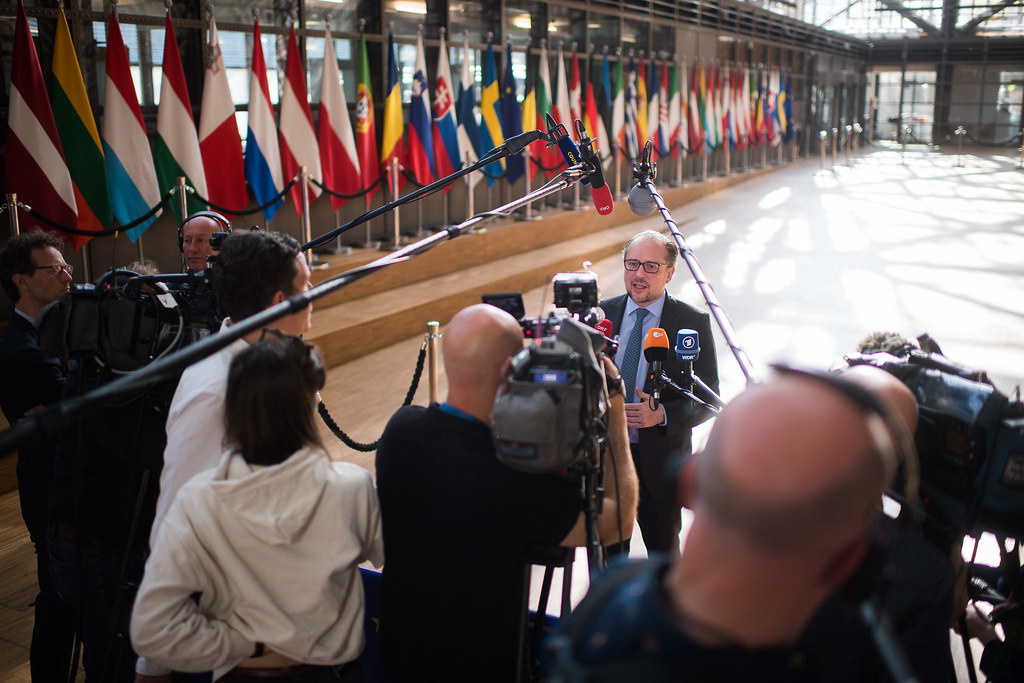Sponsored Content
Austrian Foreign Minister in Brussels: "Sanctions are Having an Effect"
This week, the Foreign Affairs Council met in Brussels to discuss the status of the Russian aggression in Ukraine as well as the coordination of sanctions and assistance. Relations with Latin American and Caribbean countries and digital diplomacy were also discussed.
 Schallenberg highlighted the impact of sanctions at the Foreign Affairs Council. / Picture: © BMEIA / Gruber
Schallenberg highlighted the impact of sanctions at the Foreign Affairs Council. / Picture: © BMEIA / Gruber
The Foreign Affairs Council in Brussels met this week to discuss the status of Russian aggression in Ukraine and the coordination of related sanctions and assistance. Relations with Latin American and Caribbean countries and digital diplomacy were also on the agenda.
Foreign Minister Alexander Schallenberg also participated in the Foreign Affairs Council, which took place on 18…
or Log In
Fast News Search





